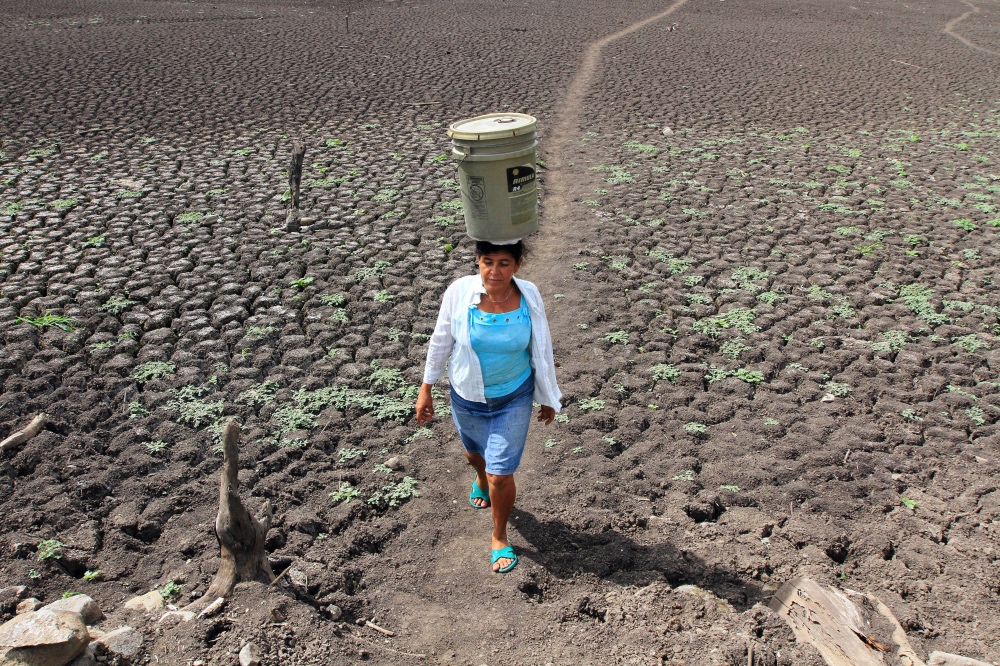Bogota, Colombia
Thomson Reuters Foundation
Poor harvests and prolonged drought are driving rural families in parts of Central America from their homes to seek better opportunities in their own or neighboring countries and in the United States, the United Nations said on Wednesday.
Five years of recurring droughts have destroyed maize and bean harvests, leaving poor subsistence farmers in the so-called Dry Corridor that runs through Guatemala, El Salvador, Honduras and Nicaragua struggling to feed their families.

A woman carries a bucket of water on her head in Santa Isabel, Nicaragua, on 19th August, 2014. PICTURE: Reuters/Oswaldo Rivas
A 2018 survey by the UN World Food Programme found that eight per cent of families interviewed in the Dry Corridor, mostly small-scale farmers, said they plan to migrate because they lack food.
Some 1.4 million people living in the Dry Corridor need food aid, according to the WFP, which aims to help 700,000 people this year in El Salvador, Guatemala, Honduras and Nicaragua. So far 160,000 people have received support.
Climate change is causing more frequent and severe droughts, as well as torrential and erratic rains, leaving families with little choice but to migrate, the WFP said.
“People first start to lose their income source, they then start to sell their assets, then they start to look for other possibilities,” said Rossella Bottone, the WFP’s monitoring and evaluation officer for Latin America and the Caribbean.
“One of the coping strategies is first internal migration – so they go to the cities to find income. But when these coping strategies are exhausted, they migrate externally,” Bottone told the Thomson Reuters Foundation.
WFP research in 2017 found a clear link between food shortages and emigration in Honduras, El Salvador and Guatemala, where destitute families are also driven to migrate because of extreme poverty and gang violence.
While many leaving the Dry Corridor are men, more women have been migrating with their children north to the United States over the past year, Bottone said.
Earlier this month, Germany announced it would provide $US1.1 million to the WFP in emergency food aid to support thousands of families in Honduras affected by the drought.
“Climate change and its consequences have resulted in more and more people now seeing emigration as the only way out,” said Thomas Wriessnig, Germany’s ambassador in Honduras.
Bottone said it was increasingly vital to help rural communities, where many farm by hand, to cope with climate change. WFP is working with affected communities to improve water irrigation systems and reforest areas.
“The climate change is there, but the other side is how people are equipped to cope,” Bottone said. “When people are better equipped, they can better face the shock.”





